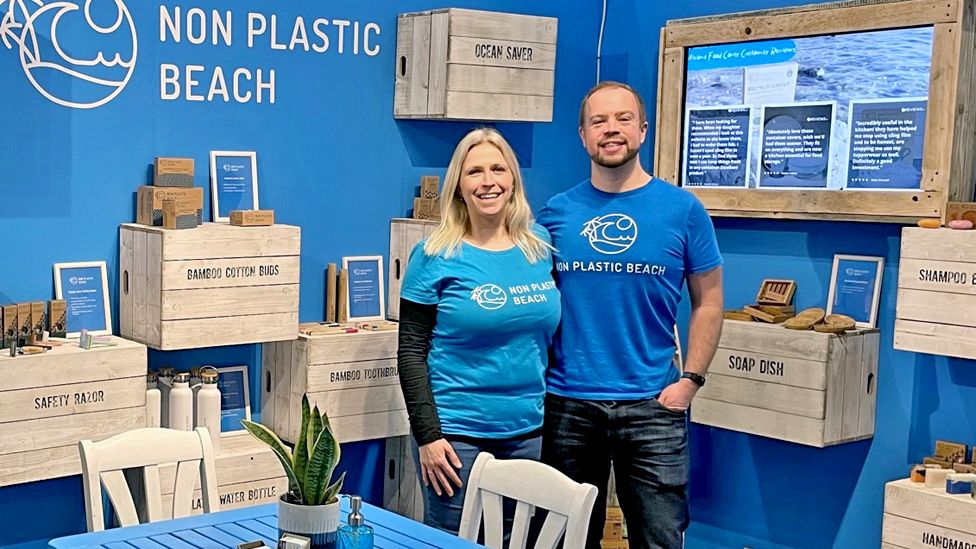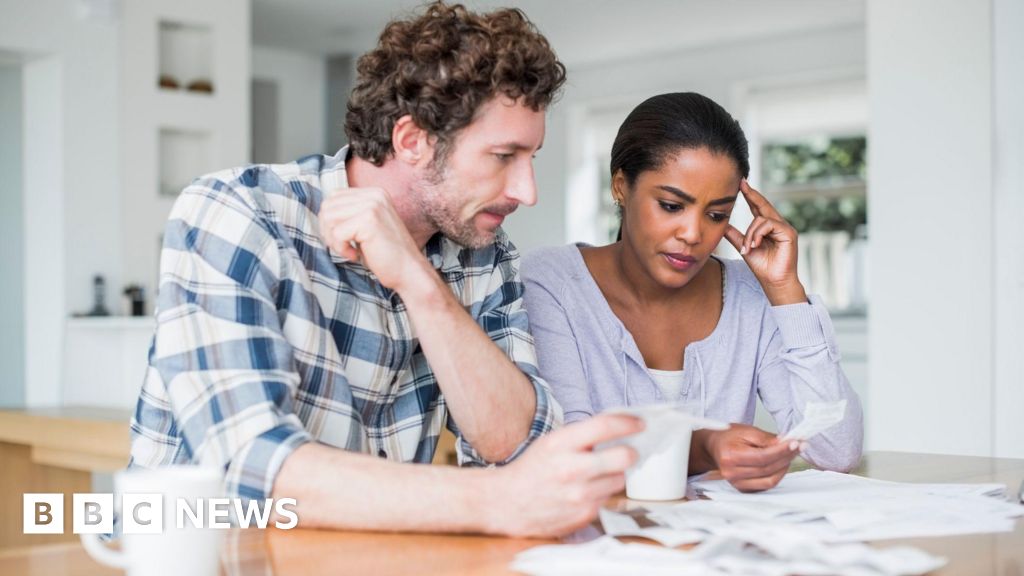ARTICLE AD BOX
 Image source, Non Plastic Beach
Image source, Non Plastic Beach
By Dougal Shaw
Business reporter, BBC News
With the number of companies going bust in England and Wales this year on track to be the highest since the financial crisis in 2009, are entrepreneurs prepared to deal with the fallout from failure?
In fact, the stigma around business failure has dissolved in recent years and entrepreneurs are increasingly comfortable talking about it.
A high degree of failure is inevitable in business. In general, more than half of start-ups fail within five years. And that's before you take into account the challenges in the current economic climate.
One pair of entrepreneurs happy to open up about their business failure so that others can learn from their mistakes is the husband-and-wife team behind eco-friendly retailer Non Plastic Beach, which folded this summer.
Gareth and Nicola Dean, both aged 42 and from Oxfordshire, set up the business in 2018.
Gareth had 20 years' experience working in PR for the automotive industry. Nicola is a qualified chartered accountant, teaching it on a freelance basis. But like many, they harboured an idea for a dream business. And they believed their skills could complement each other.
"The inspiration came from a holiday to Mauritius," says Gareth. "We are both keen divers and we kept seeing plastic bags on the reef."
So they began sourcing and creating products that were made and packaged in an environmentally friendly way.
Gareth took voluntary redundancy to go full-time with their business idea.
Image source, Non Plastic Beach
Image caption,The early product range included toothbrushes, soaps, bamboo cotton buds and other household items
To begin with they sold around 60% of products directly via their own website, and 40% through retailers they met at trade shows. They were sending pallets of products to retailers as far afield as Portugal and the Falkland Islands.
An early success was providing Etihad Airways with a consignment of toothpaste tablets for their first plastic-free flight.
'Huge challenge'
The point when they first realised the business might fold, says Gareth, came with the mini-budget of September 2022.
Demand from the website and retailers suddenly fell as even people who by most standards were well-off felt they had to change their spending habits.
"Our customers were now having to make hard choices about spending a little extra on an eco-product or simply buying whichever version of that product they could afford," says Nicola.
But the macroeconomic circumstances had been against them from the start, reflects Gareth.
"Unprecedented shocks in the economy, all sequentially, year-on-year, would be a huge challenge for any new business," he argues.
"In the final quarter of 2019, 25% of our business was with the EU. After [Britain left the EU], that fell off a cliff to 0.5% and never recovered."
After Brexit there was the war in Ukraine and the resulting high energy prices also had a big impact on consumer spending, he says.
In January this year Gareth went back to working full-time as an employee, finding a job doing PR for an e-mobility firm. Nicola worked freelance in accountancy again to try to keep the business afloat.
But it was to no avail and they were forced to stop trading in June.
Lessons learned
Despite his background in marketing, Gareth puts one crucial error down to publicity and advertising.
He was too reliant on Facebook marketing and too slow to react when that ceased to be so effective, he says.
This happened after Apple introduced privacy setting changes on its iPhones in 2021, so Facebook couldn't automatically track which sites users were visiting to build an accurate profile of customer habits.
This led to less targeted advertising, more wasted money and a decline in direct-to-consumer sales through their website, says Gareth.
He wishes he had spotted this trend earlier and stopped spending - you need to react quickly when you are running a small business on tight margins, he now realises.
He also wishes he had gone to more trade fairs sooner as you can negotiate better margins with retailers, which could have helped the business grow.
Image source, Non Plastic Beach
Image caption,Gareth realised that trade shows were a good place to drum up sales at scale
When you are running a small business it really becomes part of your personal identity, says Gareth. So when it collapses, it is very tough to deal with.
But he and his wife were touched by the messages of support they received on social media, which really helped. Many people were shocked when they found out about the demise of the business.
"I guess they assume from social media that everything is always going swimmingly," muses Gareth.
But one of the best things about being part of a husband-and-wife team, he says, is that you've been in it together and you have each other for emotional support.
"I feel that doing something like this again is almost inevitable," says Nicola. "I don't know what that would be, and we need to recover from this one first, but I'm certainly not ruling it out.
"There's something magical about running your own business."
For feedback on this article or to suggest another small business in the UK that has recently failed, you can email business reporter Dougal Shaw

 1 year ago
33
1 year ago
33








 English (US) ·
English (US) ·